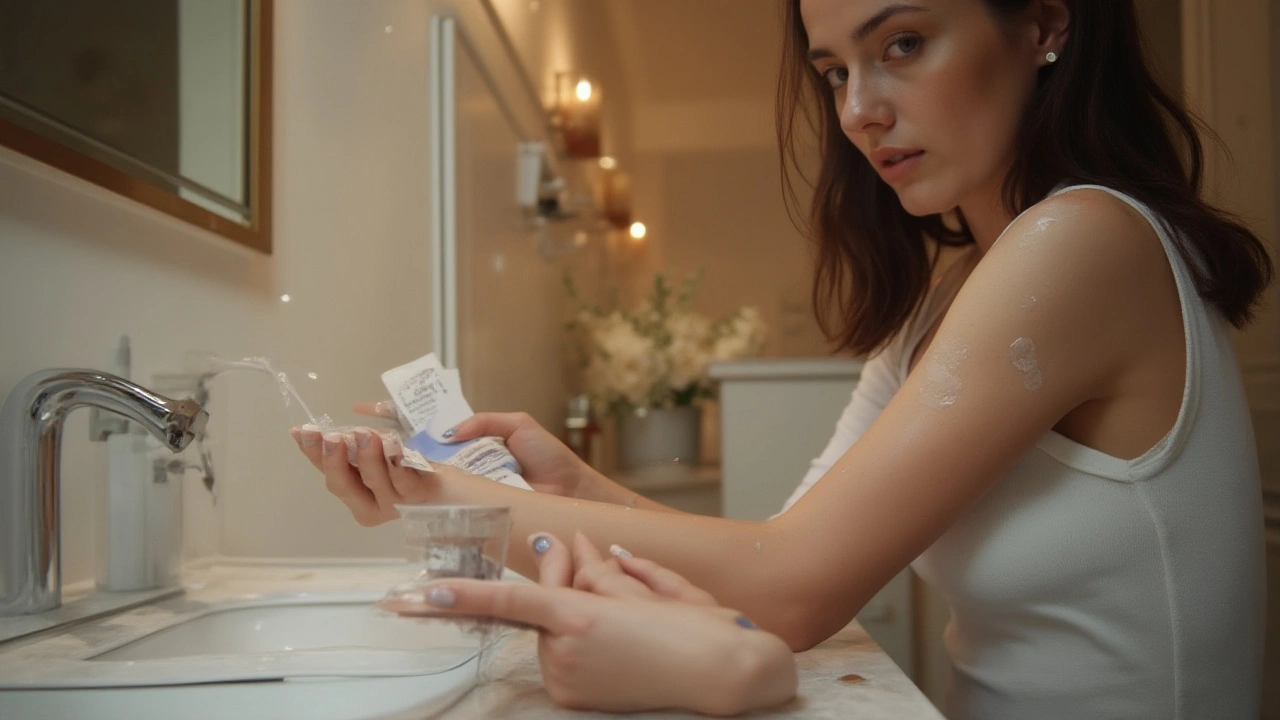Elidel (pimecrolimus): Practical guide for treating eczema
Elidel (pimecrolimus) is a non-steroid cream doctors use to treat mild to moderate eczema, especially on sensitive areas like the face and skin folds. It reduces inflammation and itching by targeting immune cells in the skin. People choose Elidel when steroids aren't a good fit or when they need a steroid-free option for longer-term control.
Use it right: wash and dry the skin, apply a thin layer to the affected area twice a day, and rub it in gently. Do not cover the treated area with bandages unless your doctor tells you to. If you use moisturizers, wait a few minutes after Elidel so the medicine can absorb. You usually see improvement in a few days, but full benefit may take several weeks.
Side effects are mostly local: burning, stinging, redness, or mild itching where the cream is applied. These often ease after the first few days. If you notice severe swelling, hives, or signs of infection, stop using it and contact your doctor. Elidel is not recommended for infants under two months of age.
How Elidel compares to topical steroids
When to pick Elidel over steroids
Elidel avoids steroid-related side effects like skin thinning and stretch marks. That makes it useful for long-term control and for areas where the skin is thin. Steroids often work faster for flare-ups, but doctors may switch to Elidel to maintain control once the worst inflammation is down. Your provider can suggest a plan that alternates or combines treatments safely.
Quick tips you can use today
- Use only on the areas your doctor points out; more is not better.
- Stick to the prescribed schedule; skipping doses can slow progress.
- Keep moisturizers on hand; they help repair the skin barrier and reduce flares.
- Avoid heavy sun exposure on treated skin and use sunscreen.
- Tell your doctor about other medications, infections, or immune conditions.
Getting Elidel usually requires a prescription. Many pharmacies and legitimate online services will fill it, but avoid sites that sell without a valid prescription. If cost is a concern, ask your clinic about samples, generic options, or patient assistance programs.
Follow-up and monitoring: schedule a follow-up if symptoms persist after four weeks, or sooner for worsening rash. Your doctor may examine the area, check for infection, or consider switching to another therapy like topical steroids, phototherapy, or systemic treatments for severe cases. Keep a symptom diary to track triggers and treatment response, and bring it to appointments.
Questions people ask: If Elidel stops working, don’t double the dose. Call your doctor to check for infection, treatment resistance, or a need to switch therapy. Pregnant or breastfeeding? Discuss risks and benefits with your provider before starting. If you have a weakened immune system, your doctor will weigh options carefully.
Elidel is a practical steroid-free option for many people with eczema, especially on sensitive skin. Use it as directed, watch for local side effects, and stay in touch with your healthcare team to get the best results.

Elidel Cream Uses, Side Effects, and Tips: Guide to Safe Skin Treatment
Curious about Elidel? Discover how this eczema cream treats skin issues, what to watch for with side effects, and smart ways to use it safely.
Read more